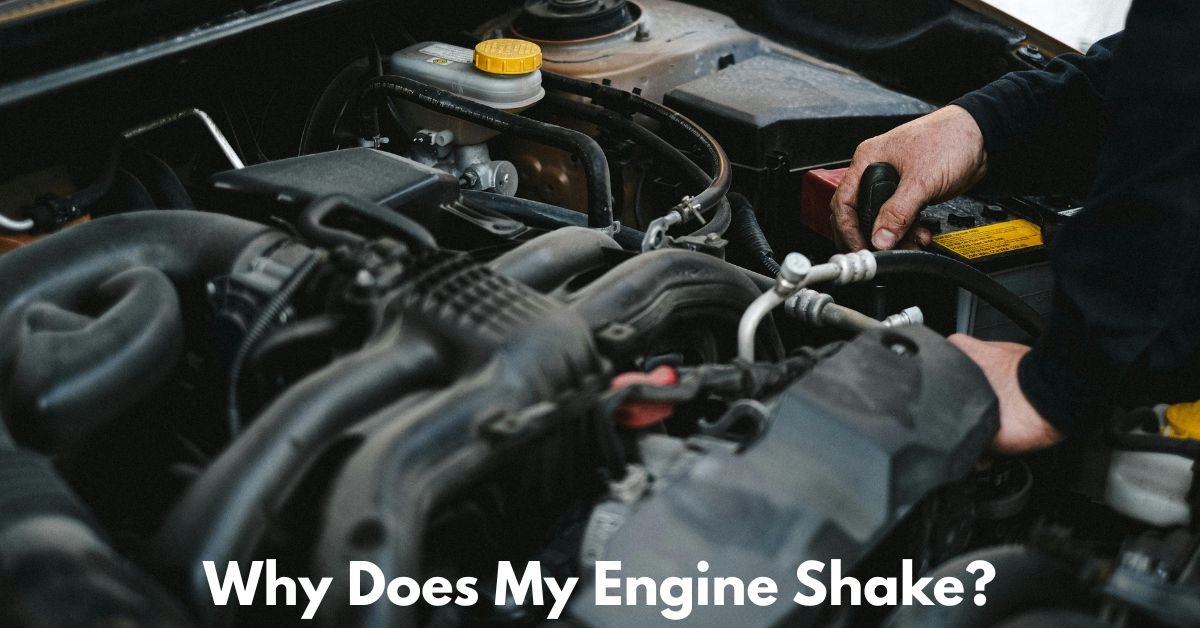Have you ever started your car only to feel an unsettling vibration or shaking coming from the engine? It can be alarming—especially if you’re unsure of what’s causing it. Engine shaking isn’t just an inconvenience; it can be a symptom of a deeper issue that needs attention. In this post, we’ll break down the most common reasons your engine might be shaking and what steps you can take to diagnose or fix the problem.
Why Does My Engine Shake? Common Causes and What You Can Do
1. Worn or Broken Engine Mounts
One of the most common causes of engine vibration is worn-out or broken motor mounts. Engine mounts are made to absorb vibrations and maintain engine stability. When these mounts wear out or crack—usually due to age, stress, or rough driving conditions—the engine can move more than it should, leading to noticeable shaking, especially during acceleration or idling.
Symptoms:
- Excessive vibration felt in the cabin
- Engine seems to “move” when accelerating
- Clunking noise when shifting gears
Solution:
A mechanic can inspect and replace faulty mounts. It’s generally not a DIY fix unless you have experience with engine work.
2. Misfiring Spark Plugs or Ignition Issues
If your engine is shaking and you’re noticing a drop in power, poor fuel economy, or the check engine light is on, spark plugs could be to blame. Spark plugs ignite the air-fuel mixture inside the engine cylinders. If one or more misfire, it causes the engine to run unevenly—creating that rough, shaking feeling.
Symptoms:
- Shaking during acceleration or at idle
- Rough engine sound
- Engine misfire codes on diagnostics
Solution:
Replace faulty spark plugs and inspect ignition coils or wires. This is often a straightforward repair that many car owners can do themselves.
3. Dirty or Faulty Fuel Injectors
Fuel injectors play a vital role in delivering fuel into the engine cylinders in a fine mist for proper combustion. When they become clogged or malfunction, fuel delivery becomes inconsistent, leading to engine shake and rough performance.
Symptoms:
- Engine shake during idle or acceleration
- Poor fuel efficiency
- Smell of unburned fuel
Solution:
Fuel injector cleaning may help, but replacement may be necessary if they are too clogged or damaged. Some shops offer fuel system cleaning services that can make a noticeable difference.
Must Read: How To Fix Engine Power Reduced In Chevy Equinox?

4. Vacuum Leaks
The exact ratio of fuel to air is essential to your engine. A vacuum leak disrupts this balance, allowing excess air into the system and causing the engine to run “lean” (too much air, not enough fuel). This imbalance often results in shaking and rough idling.
Symptoms:
- High-pitched hissing sound
- Rough idling
- Check engine light on
Solution:
Locating a vacuum leak can be tricky. Mechanics often use smoke machines or diagnostic tools to find leaks in hoses, gaskets, or intake components. Once found, the faulty component can be replaced.
5. Worn Timing Components
The pistons and valves in your engine move in unison thanks to timing belts or chains. If these components wear out or become misaligned, it can lead to rough engine operation and vibration. In the worst situation, a broken timing belt may cause harm to the engine.
Symptoms:
- Engine shaking
- Rattling noise from the engine
- Decrease in engine performance
Solution:
Timing belts should be replaced according to your vehicle’s maintenance schedule (often around 60,000 to 100,000 miles). Delaying this repair can lead to very expensive engine damage.
6. Bad Motor Balancing or Internal Engine Issues
In rare cases, engine shaking can be due to problems inside the engine—like a bent crankshaft, poor balancing, or piston issues. These problems often show up in older or heavily driven engines.
Symptoms:
- Persistent shaking regardless of speed
- Knocking or tapping sounds
- Oil consumption
Solution:
This usually requires a more in-depth engine diagnosis and possibly an engine rebuild or replacement.
Conclusion: Don’t Ignore the Shake
Engine shaking isn’t just annoying—it’s a signal that something isn’t working right under the hood. Whether it’s something simple like a bad spark plug or a more serious issue like internal engine damage, it’s important to get it checked as soon as possible.
If you’re unsure what’s causing the vibration, start by taking your car to a trusted mechanic for a diagnostic check. A small fix today could save you from a costly repair tomorrow.
Have you experienced engine shake? What was the cause in your case? Share your experience or let us know in the comments!
